A Look at Housing Supply and What It Means for Sellers
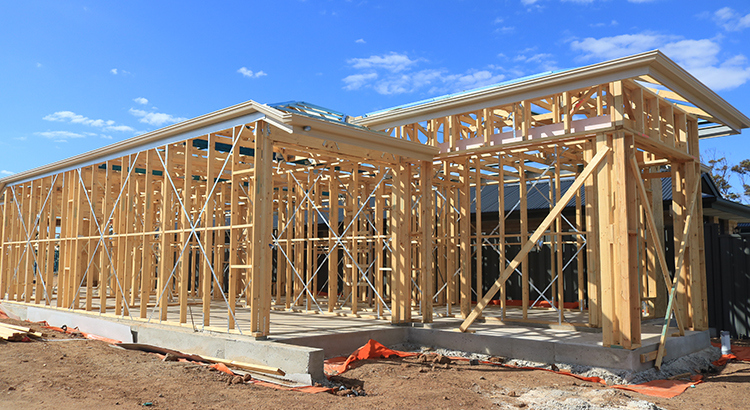
One of the hottest topics of conversation in today’s real estate market is the shortage of available homes. Simply put, there are many more potential buyers than there are homes for sale. As a seller, you’ve likely heard that low supply is good news for you. It means your house will get more attention, and likely, more offers. But as life begins to return to normal, you may be wondering if that’s something that will change.
While it may be tempting to blame the pandemic for the current inventory shortage, the pandemic can’t take all the credit. While it did make some sellers hold off on listing their houses over the past year, the truth is the low supply of homes was years in the making. Let’s take a look at the root cause and what the future holds to uncover why now is still a great time to sell.
Where Did the Shortage Come From?
It’s not just today’s high buyer demand. Our low supply goes hand-in-hand with the number of new homes built over the past decades. According to Sam Khater, VP and Chief Economist at Freddie Mac:
“The main driver of the housing shortfall has been the long-term decline in the construction of single-family homes.”
Data in a recent report from the National Association of Realtors (NAR) tells the same story. New home construction has been lagging behind the norm for quite some time. Historically, builders completed an average of 1.5 million new housing units per year. However, since the housing bubble in 2008, the level of new home construction has fallen off (see graph below):
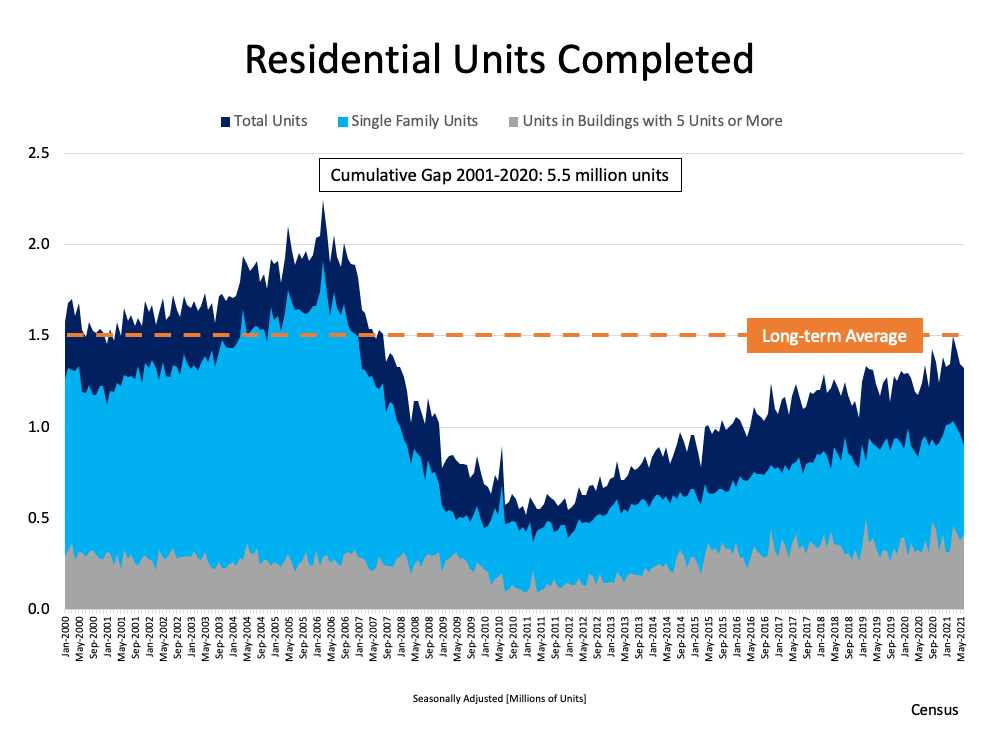
The same NAR report elaborates on the impact of this below-average pace of construction:
“. . . the underbuilding gap in the U.S. totaled more than 5.5 million housing units in the last 20 years.”
“Looking ahead, in order to fill an underbuilding gap of approximately 5.5 million housing units during the next 10 years, while accounting for historical growth, new construction would need to accelerate to a pace that is well above the current trend, to more than 2 million housing units per year. . . .”
That means if we build even more new houses than the norm every year, it’ll still take a decade to close the underbuilding gap contributing to today’s supply-and-demand mix. Does that mean today’s ultimate sellers’ market is here to stay?
We’re already starting to see an increase in new home construction, which is great news. But newly built homes can’t bridge the supply gap we’re facing right now on their own. In the State of the Nation’s Housing 2021 Report, the Joint Center for Housing Studies of Harvard University (JCHS) says:
“…Although part of the answer to the nation’s housing shortage, new construction can only do so much to ease short-term supply constraints. To meet today’s strong demand, more existing single-family homes must come on the market.”
Early Indicators Show More Existing-Home Inventory Is on Its Way
When we look at existing homes, the latest reports signal that housing supply is growing gradually month-over-month. This uptick in existing homes for sale shows things are beginning to shift. Based on recent data, Odeta Kushi, Deputy Chief Economist at First American, has this to say:
“It looks like existing inventory is starting to inch up, which is good news for a housing market parched for more supply.”
Lawrence Yun, Chief Economist at NAR, echoes that sentiment:
“As the inventory is beginning to pick up ever so modestly, we are still facing a housing shortage, but we may have turned a corner.”
So, what does all of this mean for you? Just because life is starting to return to normal, it doesn’t mean you missed out on the best time to sell. It’s not too late to take advantage of today’s sellers’ market and use rising equity and low interest rates to make your next move.
Buy Before You Sell – With Wendy Mariani of Absolute Mortgage
Remote Work Has Changed Our Home Needs. Is It Time for Your Home To Change, Too?

Over the past year, many homeowners realized what they need in a home is changing, especially with the rise in remote work. If you’re longing for a dedicated home office or a change in scenery, now may be the time to find the home that addresses your evolving needs.
Working from Home Isn’t a Passing Fad
Before the pandemic, only 21% of individuals worked from home. However, if you’ve recently discovered remote work is your new normal, you’re not alone.
A survey of hiring managers conducted by Statista and Upwork projects 37.5% of U.S. workers will work remotely in some capacity over the next 5 years (see chart below):
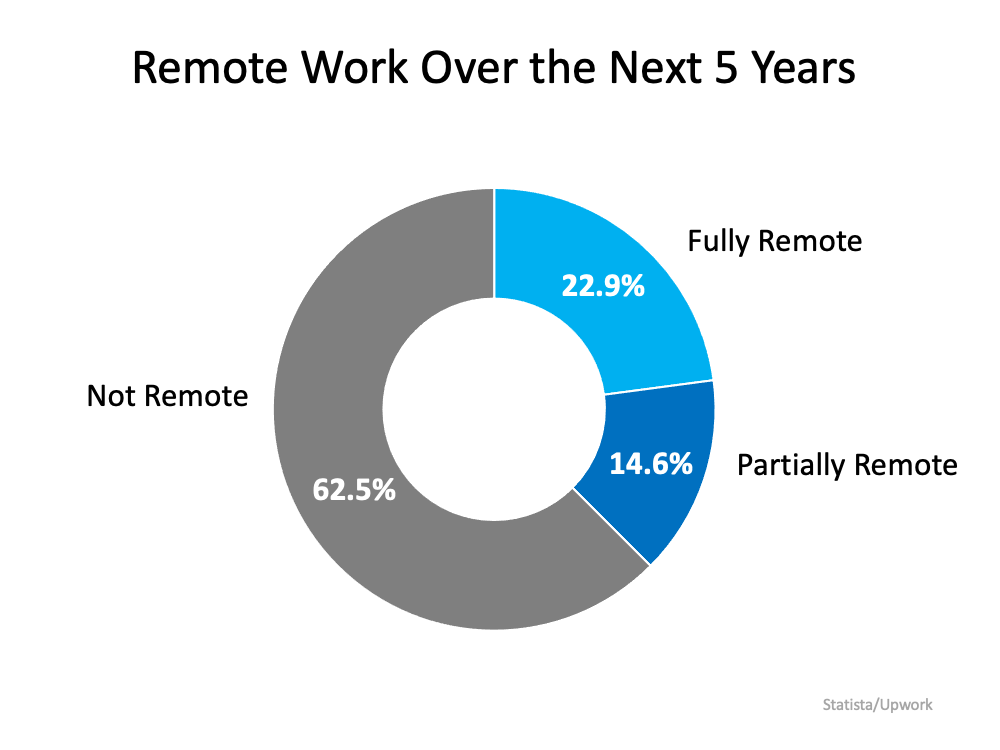
Working from Home Gives You More Flexibility and More Options
If you fall in that category, working from home may provide you with opportunities you didn’t realize you had. The ongoing rise in remote work means a portion of the workforce no longer needs to be tied to a specific area for their job. Instead, it gives those workers more flexibility when it comes to where they can live.
If you’re one of the nearly 23% of workers who will remain 100% remote, you have the option to move to a lower cost-of-living area or to the location of your dreams. If you search for a home in a more affordable area, you’ll be able to get more house for your money, freeing up more options for your dedicated office space and more breathing room. You could also move to an area you’ve always dreamed of vacationing in – somewhere near the beach, the mountains, or simply an area that features better weather and community amenities. Without your job tying you to a specific location, you’re bound to find your ideal spot.
If you’re one of the almost 15% of individuals who will have a partially remote or hybrid schedule, relocating within your local area to a home that’s further away from your office could be a great choice. Since you won’t be going into work every day, a slightly longer commute from a more suburban or rural area could be a worthy trade-off for a home with more features, space, or comforts. After all, if you’ll still be at home part-time, why not find a home that better suits your needs?
According to the latest Top Ten Issues Affecting Real Estate from The Counselors of Real Estate (CRE), many homebuyers are already taking advantage of their newfound flexibility:
“. . . after years of apparent but variant trends towards urbanization, the pandemic universally caused a movement away from urban cores, particularly for those with higher incomes who could afford to move and for lower-income individuals seeking lower costs of living.”
Bottom Line
If you’ve found what you’re looking for in a home has changed due to remote work, it may be time to make a move. Let’s connect today to start prioritizing your home needs.
Selling Your House? Make Sure You Price It Right.

There’s no denying we’re in a sellers’ market. With low inventory and high buyer demand, homes today are selling above the asking price at a record rate. According to the latest Realtors Confidence Index Survey from the National Association of Realtors (NAR):
- Homes typically sell within 17 days (compared to 26 days one year ago).
- The average home sold has five offers to pick from.
- 54% of offers are over the asking price.
Because so many buyers are competing for so few homes, bidding wars are driving up home prices. According to an average of leading expert projections, existing home prices are expected to increase by 8.9% this year.
Yet even in today’s red-hot sellers’ market, it’s important to price your house right. While it may be tempting to price your house on the high side to capitalize on this trend, doing so could limit your house’s potential.
Why Pricing Your House Right Matters
Here’s the thing – a high price tag doesn’t mean you’re going to cash in big on the sale. While you may be trying to maximize your return, the tradeoff may be steep. A high list price is more likely to deter buyers, sit on the market longer, or require a price drop that can raise questions among prospective buyers.
Instead, focus on setting a price that’s fair. Real estate professionals know the value of your home. By pricing your house based on its current condition and similar homes that have recently sold in your area, your agent can help you set a price that’s realistic and obtainable – and that’s good news for you and for buyers.
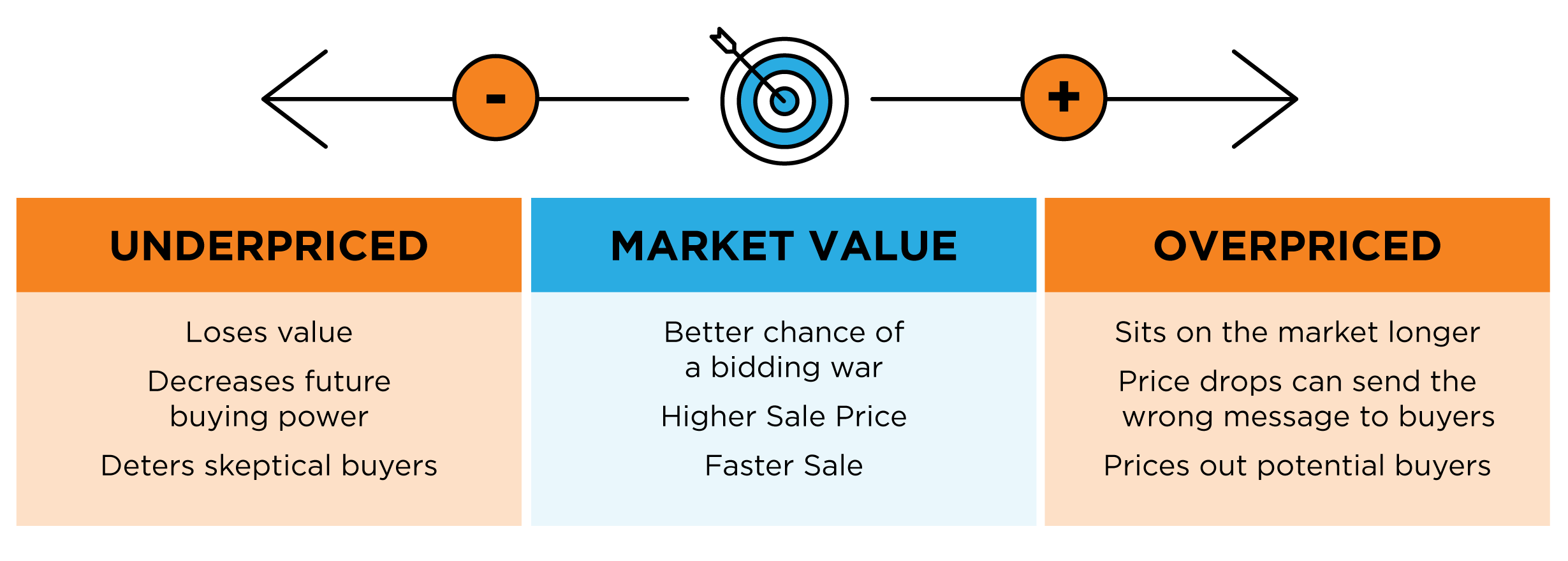
When you price your house right, you increase your home’s visibility, which drives more buyers to your front door. The more buyers that tour your home, the more likely you’ll have a multi-offer scenario to create a bidding war. When multiple buyers compete for your house, that sets you up for a bigger win.
Bottom Line
When it comes to pricing your house, working with a local real estate professional is essential. Let’s connect so we can optimize your exposure, your timeline, and the return on your investment, too.
June Eastside Residential Statistics

The June statistics show more of the same…..astonishing statistics:
• Median closed sales price $1,364,000 up 40%
• 78% of homes sold for over the list price. The median over list price paid was 14%.
• 92% of properties that sold had less than 15 days on market.
Looking for signs that our prediction (written in May. Copy below), that Buyers would experience “minor”
relief:
• Median closed sales price for the past four months are relatively flat when compared to the
40% year over year increase: $1,350,000 (March), $1,300,000 (April), $1,298,475 (May), and
$1,364,000 (June).
• The percentage of homes sold for over the list price peaked in March and historically drops
from April through December (see page 3 below).
• June had the most new listings this year. July is historically is the third highest number of
new listings behind May and June


The market is so low on inventory that historic norms may not occur. If norms do occur, buyers may
experience minor relief.
• May, June and July are the top three new listings months.
• Historically the percentage of homes selling over list price decreases after April.
• Median closed sale price generally flatten out in the second half of the year.
• Monthly payments, based on the average King County Residential sales price and prevailing 30
year interest rates, as a percentage of an inflationary trend line are approaching previous market
highs (136 vs 140 and 151)

A Look at Home Price Appreciation Through 2025

Home prices have increased significantly over the last year, which in turn has grown the net worth of homeowners. Appreciation and home equity are directly linked – as the value of a home increases, so does a homeowner’s equity. And with these recent gains, homeowners are witnessing their financial stability and well-being grow to record levels.
In more good news for homeowners, the most recent Home Price Expectations Survey – a survey of a national panel of over one hundred economists, real estate experts, and investment and market strategists – forecasts home prices will continue appreciating over the next five years, adding to the record amount of equity homeowners have already gained over the past year. Below are the expected year-over-year rates of home price appreciation from the report:
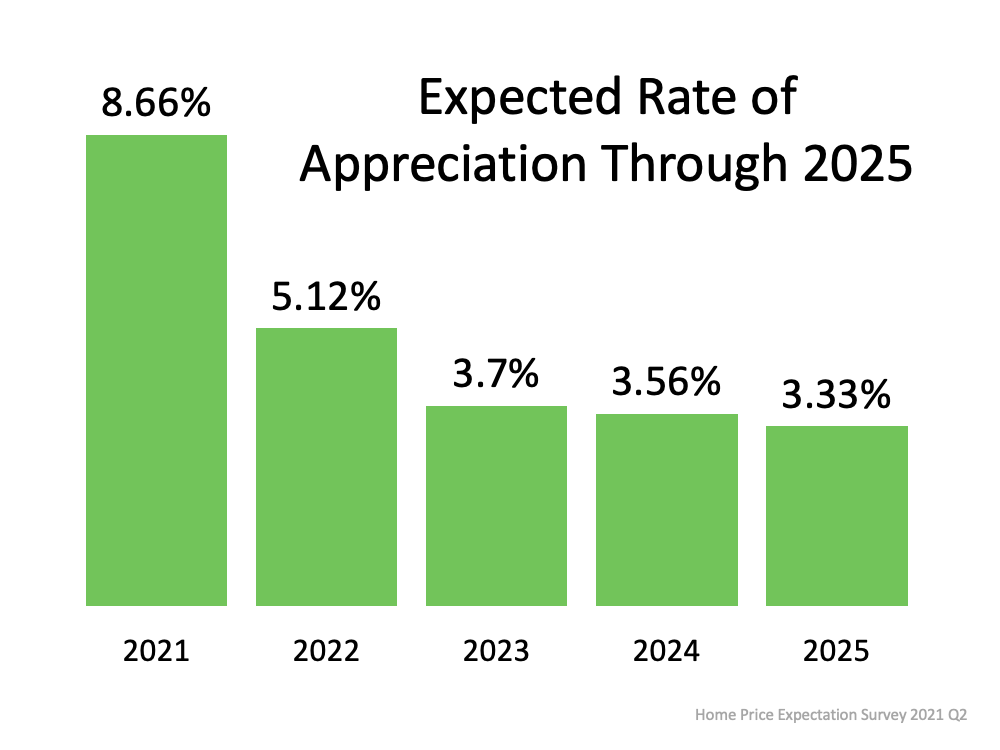
What Does This Mean for Homeowners?
Home prices are climbing today, and the data in the survey indicates they’ll continue to increase, but at rates that approach a more normal pace. Even still, the amount of household wealth a homeowner stands to earn going forward is substantial. This truly becomes clear when we consider a scenario using a median-priced home purchased in January of 2021 and the projected rate of appreciation on that home over the next five years. As the graph below illustrates, a homeowner could increase their net worth by a significant amount – over $93,000 dollars by 2026.
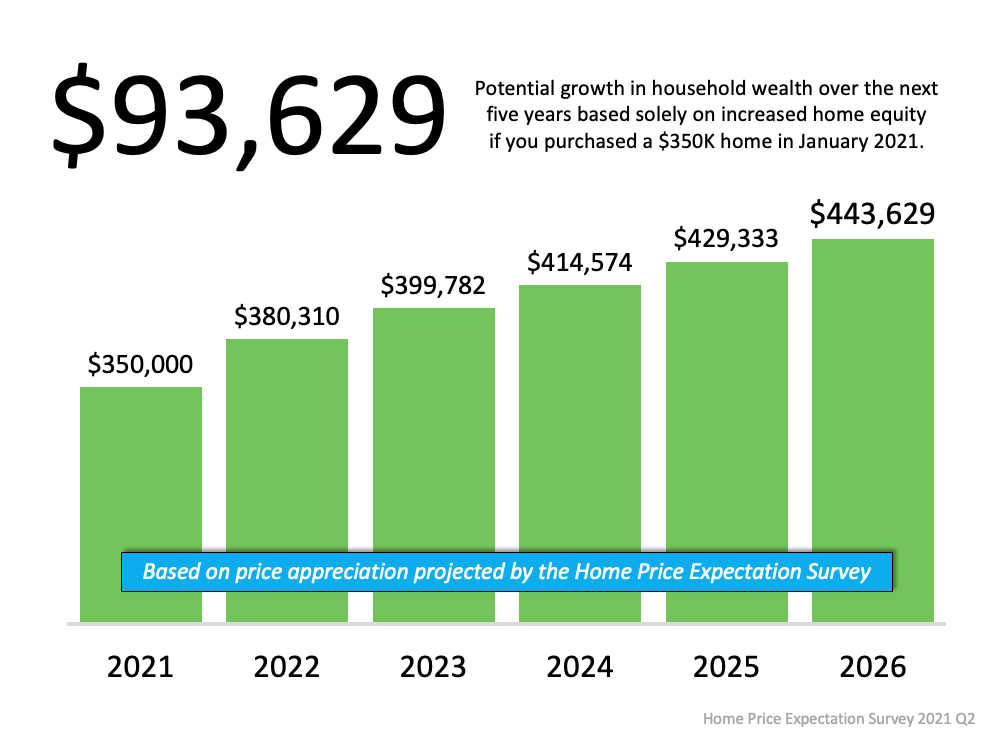
Home Price Appreciation and Home Equity
CoreLogic recently released their quarterly Homeowner Equity Insights Report, which tracks the year-over-year increases in equity. It shows an average annual gain of $33,400 per borrower over the past 12 months. In the report, Dr. Frank Nothaft, Chief Economist for CoreLogic, further explains:
“Double-digit home price growth in the past year has bolstered home equity to a record amount. The national CoreLogic Home Price Index recorded an 11.4% rise in the year through March 2021, leading to a $216,000 increase in the average amount of equity held by homeowners with a mortgage.”
The expected, sustained growth of home prices means homeowners can continue to build on the past year’s record levels of home equity – and their financial prosperity. It also presents today’s homeowners with a unique opportunity: using their growing equity for a home upgrade. With so few homes available to purchase and strong buyer demand, there may not be a better time to sell your current house and move into one that better meets your needs.
Bottom Line
Home prices are expected to continue appreciating over the next five years, and the associated equity gains are the quickest way homeowners can build household wealth. If you’re a current homeowner who’s ready to take advantage of your built-up equity, let’s connect today to discuss your options.

 Facebook
Facebook
 X
X
 Pinterest
Pinterest
 Copy Link
Copy Link

![Homebuyers: Hang in There [INFOGRAPHIC] | MyKCM](https://files.mykcm.com/2021/06/24105823/20210625-MEM-1046x2093.png)